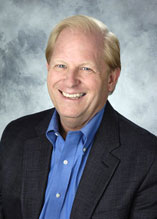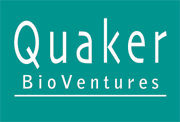
Sherrill Neff
Thanks to the city’s glut of local universities and pharmaceutical companies, Philadelphia is a wonderful environment for a biotech startup to begin and to exit.
However, with the lack of an IPO market and current economic conditions, statups often need hundreds of millions of dollars to see their idea from research product to sale to big pharma.
And that’s where Quaker BioVentures steps in.
Founded in 2003 by Ira Lubert, Brenda Gavin and Sherrill Neff, Quaker takes pride in keeping all of its investments local — and for good reason. Philadelphia benefits from being in the center of the perfect storm of plentiful university research combined with a large number of pharmaceutical companies having major local operations.
“It’s important we get to know the [big pharmaceutical companies] really well, that they are our friends socially and professionally,” says Neff. “It’s easier here than if we were sitting on the West coast trying to have that interaction.”
After raising $280 million in 2003 and an additional $420 in 2006, Quaker has invested in over 25 companies, most based in the tri-state area.
We talked to Founding Partner Sherrill Neff about why Quaker only invests locally, how the citiy’s biotech market has evolved and why he credits lion slaying as one of his hobbies.
As always, the conversation was edited for length and clarity.
What was Philly like in 2003, when you started Quaker, compared to now?
Ten years ago, it would have been difficult to catalyze a significant syndicate. Now, I feel that if we have a good company going, we have no problem catalyzing a large and robust syndicate.
What’s good about the region now, is that if we find a good enough opportunity, the community is tight enough and respected enough to draw money to these companies.
The one thing that companies need in our industry is access to capital. It typically comes from three places: VC funds, collaborations with larger companies or from the public market. This has been an environment where the public market is shut down. So pharma has put significant money at work through collaborations with venture [capital firms].
Because unlike “pure tech” companies, biotech requires very significant funding. We like to say that we are collaborative and cooperative with our peer venture capital firms, not competitive.
 Why does Quaker only invest in biotech?
Why does Quaker only invest in biotech?When we started, I had been recent president of a biotech company… I had been all around venture capital for years. The reason [Ira Lubert, Brenda Gavin and I] came together and the reason we think we have a great opportunity is because of the huge concentration of the medical sciences [in Philadelphia] and the relative lack of concentration of VC firms.
Almost all of the large pharma companies either have headquarters or major operations in the area. Without the IPO market, we have to sell these companies to the large pharma companies. It’s important we get to know the buyers really well, that they are our friends socially and professionally. It’s easy to see what they’re looking for. Easier than if we were sitting on the West coast trying to have that interaction.
The other factor is the huge concentration of university medical research here. We always felt that if we had enough VC firms we could have huge growth in the region.
In our last Q&A, our interview subject said she thought local pharma entrepreneurship was lagging. Do you share the same concern?
It’s something we have to watch closely and we’ve been a little bit concerned that in recent months there have not been more startup opportunities locally. These things go in cycles, certainly going back to the earliest days of the biotech industry there were a couple of companies that got started in the region that have become very important.
We are always focused on getting a new crop going all of the time. There are not that many funds in the Philly/New Jersey area that focus on the regional companies like we do.
Most of the venture capital has been focused in Boston and Silicon Valley. We saw that as a opportunity when we started. There are huge commitments of federal funds in this region – those funds back academic medical research. Some of that funding gets patented and some of that ends up being the basis for the new companies.
That’s the cycle that we follow.
What is your connection to the region?
I was a law student at the University of Michigan, I had grown up in the Baltimore area and I got a wonderful offer from [local law firm] Morgan, Lewis & Bockius. I did go, and I never looked back. I have been living in the area ever since. I love Philadelphia.
I take it you’re a Michigan Wolverines fan then?
On the college level, yes. I like to slay [Penn State] Nittany Lions whenever I get the chance.
Every Friday, Technically Philly brings you an interview with a leader or innovator in Philadelphia’s technology community. See others here.
Companies:
Penn State / Quaker Partners
Join the conversation!
Find news, events, jobs and people who share your interests on Technical.ly's open community Slack

Philly daily roundup: Closed hospital into tech hub; Pew State of the City; PHL Open for Business

Philly daily roundup: A better coffee supply chain; Philly Tech Week returns; Apply to Pennovation Accelerator

A biotech hub is rising at Philadelphia’s shuttered Hahnemann Hospital campus

